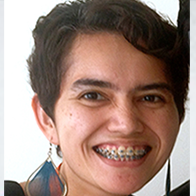Over the recent buzz of hungry students and conflicting survey data on whether there are a significant number of students who cannot afford the rising cost of living overall, came the news of supposedly frozen JPA scholarships.
 What I found interesting about this issue is actually the public outcry.
What I found interesting about this issue is actually the public outcry.
I, myself, grew up being told to study hard and get a scholarship to further my education. My parents, being civil servants, could not have afforded my tertiary education otherwise.
I am neither pretty by society’s standards nor gifted, thus getting the straight As were my only claim in life.
For a girl from the small town of Perai, the only way “out” was through education.
Yet, as I found out – even with all the privileges and hard work – scholarships do not fall down from the sky. Nor do people talk about the burden of responsibility that comes with accepting a scholarship.
Following my post-graduate studies, I actually sat down to calculate how much do I owe Malaysian taxpayers’ for my PhD.
I completed my PhD studies in Australia in four years, with a full scholarship for three years. The amount I saw sobered me. It was a far cry from RM2.6 billion but a significant amount nonetheless.
Which brings me back to the public outcry over the supposed frozen scholarships. At the time of writing, the Minister in the Prime Minister’s Department has not only claimed that he was misquoted but also assured the public that the department is studying the matter.
Apparently, a report will be produced by this week, and only those who received the national bursary in 2014 were affected
I made a suggestion on social media that I would applaud the first MP who would suggest that they each receive a pay cut in order to contribute to the JPA scholarship fund for these affected students, after all, they just received a pay raise while other civil servants’ wages are stagnant.
Until time of writing, I have not received a response.
A quick check on the JPA website showed that the department have yet to make a public statement on this issue, but, the applications are now open for the Japan government’s Monbukagakusho scholarship for teacher’s training.
I sincerely hope the students affected will find other means that can fund their studies and begin the semester in February as planned.
Most foreign universities do offer internal scholarships; this can be their plan B.
Other corporate organisations also offer scholarships and I encourage these students to not give up on their dreams and exhaust all avenues.
The issue however, is bigger than the affected batch of scholarship recipients. We need the report to be presented by JPA to be shared with the public.
Details of the report should include how many scholars, until today, actually fulfilled the requirements of the scholarships and serving their bonds, as well as how many who did not.
For the latter, there needs to be a mechanism to recover the investment made on such expensive human capitals.
There needs to be critical assessment on whether such scholarships should be continued or would it have made more sense to redirect the funds for local universities to achieve international standards and get students to study locally instead.
While I urge that scholarships to be continued and be awarded based on both merit and parents’ affordability, we urgently need to address the latter.
I have touched on this matter last week, where Malaysian parents need to emulate parents in other countries in starting a college fund once their children are born.
We should no longer rely solely on handouts by the government.
Let’s be realistic here, with the falling oil prices, the government is losing revenue. We must keep pushing for good governance in all matters, especially on government’s expenditure.
We must move beyond our “tidak apa” attitude and only vent our anger after every audit report.
We must be aware of the state of our public education and suggest measures to improve it, giving our support behind civil society organisations that fight for implementation of better education policies.
Education policies should not be changed regularly, they need to mature and only assessed over significant periods of time.
It should also not only be about scholarships. Funding should be directed to rural schools and impoverished students, with a focus on primary and secondary education.
Fellow columnist Hafidz Baharom raised good points about the continuity of “Rancangan Makanan Tambahan”, “Skim Bantuan Buku Teks”, the removal of using English as the medium to teach science and mathematics in schools and the quality of our public education.
I agree with his points.
With a strong foundation, we can have better education in Malaysia. It does not necessarily need to solely depend on JPA scholars. – January 27, 2016.
* This is the personal opinion of the writer or publication and does not necessarily represent the views of The Malaysian Insider.


Comments
Please refrain from nicknames or comments of a racist, sexist, personal, vulgar or derogatory nature, or you may risk being blocked from commenting in our website. We encourage commenters to use their real names as their username. As comments are moderated, they may not appear immediately or even on the same day you posted them. We also reserve the right to delete off-topic comments